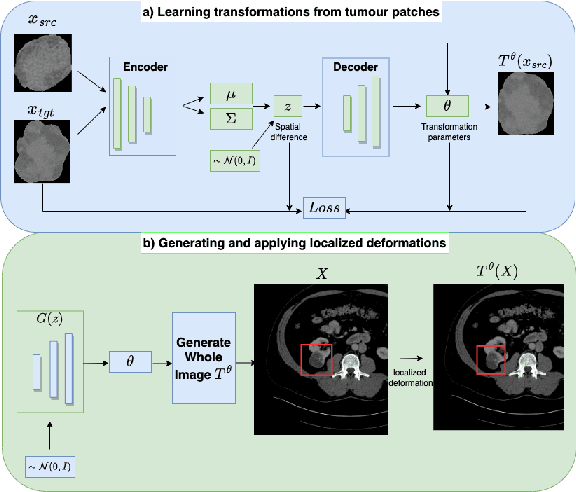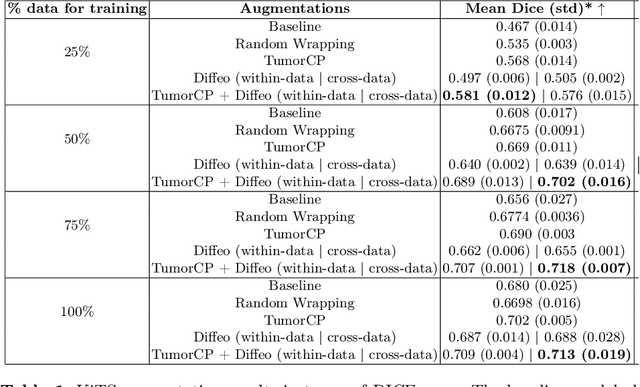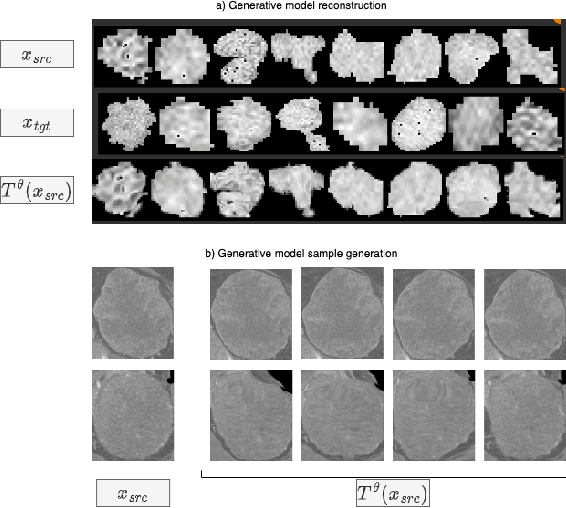Learning Transferable Object-Centric Diffeomorphic Transformations for Data Augmentation in Medical Image Segmentation
Paper and Code
Jul 25, 2023


Obtaining labelled data in medical image segmentation is challenging due to the need for pixel-level annotations by experts. Recent works have shown that augmenting the object of interest with deformable transformations can help mitigate this challenge. However, these transformations have been learned globally for the image, limiting their transferability across datasets or applicability in problems where image alignment is difficult. While object-centric augmentations provide a great opportunity to overcome these issues, existing works are only focused on position and random transformations without considering shape variations of the objects. To this end, we propose a novel object-centric data augmentation model that is able to learn the shape variations for the objects of interest and augment the object in place without modifying the rest of the image. We demonstrated its effectiveness in improving kidney tumour segmentation when leveraging shape variations learned both from within the same dataset and transferred from external datasets.
 Add to Chrome
Add to Chrome Add to Firefox
Add to Firefox Add to Edge
Add to Edge